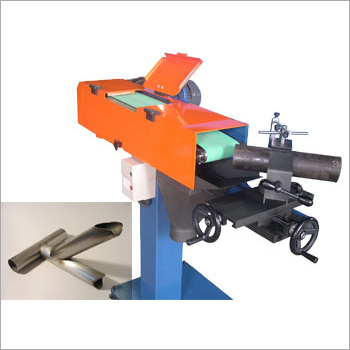X
Pipe Notcher Price And Quantity
- 11000 USD ($)/Set
- 1 Set
Pipe Notcher Trade Information
- Taichung Taiwan
- 5-10 Set Per Month
- 7 Days
- Export packaging
- Australia Central America North America South America Western Europe Middle East Eastern Europe Asia Africa
- All India
Product Description
A pipe notcher is a tool used to create notches or grooves on the ends of pipes or tubing. The notches allow pipes to be joined together at specific angles, typically for welding or other types of assembly.
There are several types of pipe notchers available, including manual notchers, electric notchers, and hydraulic notchers. Manual notchers are operated by hand and are generally used for smaller pipes or for occasional use. Electric notchers are powered by electricity and are often used for larger or more frequent notching tasks. Hydraulic notchers use hydraulic power to create notches quickly and accurately and are commonly used in industrial settings.
Pipe notchers come in a variety of sizes and shapes to accommodate different pipe diameters and angles. Some notchers are designed to create V-shaped notches, while others can create a range of shapes and sizes.
Overall, pipe notchers are essential tools for metalworkers and fabricators who work with pipes and tubing. They make it possible to create strong and precise joints between pipes, which is important for many types of construction and manufacturing projects.
Pipe Notcher Specifications:
- Model: UL-150
- Sand Belt: 150 * 2000 mm
- Motor: 2.1 KW
- Speed of Sand Belt: 30 m/sec
- Grinding Diameter: 20 - 115 mm
Pipe Notcher Applications:
Pipe notchers are used in a variety of applications where pipes or tubing need to be joined together at specific angles. Here are some common applications where pipe notchers are used:
1. Welding: Pipe notchers are often used in welding applications where pipes need to be joined together at precise angles. Notches are created on the ends of the pipes to be joined, allowing them to fit together perfectly for welding.
2. Plumbing: In plumbing applications, pipe notchers are used to create notches on pipes that are used for connecting pipes at different angles or for joining pipes to fixtures or other plumbing components.
3. Furniture and Metalwork: Pipe notchers are commonly used in the manufacturing of furniture and metalwork. They are used to notch pipes and tubing to create frames, supports, and other structural components.
4. Automotive and Racing: Pipe notchers are used extensively in the automotive and racing industries to create custom exhaust systems, roll cages, and other structural components.
5. HVAC: Pipe notchers are used in HVAC (heating, ventilation, and air conditioning) applications to create notches on ductwork and other components.
6. Industrial Manufacturing: Pipe notchers are used in many industrial manufacturing applications where pipes and tubing need to be joined together at precise angles. Examples include manufacturing of conveyor systems, racks, frames, and other structures.
Overall, pipe notchers are used in many different industries and applications where precision and strength are required for joining pipes or tubing together.
Frequently Asked Questions:
1. What is a pipe notcher used for?
Ans: A pipe notcher is used to create notches or grooves on the ends of pipes or tubing, allowing them to be joined together at specific angles for welding or other types of assembly.
2. What types of pipe notchers are available?
Ans: There are several types of pipe notchers available, including manual notchers, electric notchers, and hydraulic notchers. Manual notchers are operated by hand and are generally used for smaller pipes or for occasional use. Electric notchers are powered by electricity and are often used for larger or more frequent notching tasks. Hydraulic notchers use hydraulic power to create notches quickly and accurately and are commonly used in industrial settings.
3. What materials can be notched with a pipe notcher?
Ans: Pipe notchers are designed to work with various types of metal tubing, such as steel, aluminum, and stainless steel. Some pipe notchers can also be used with non-metallic materials, such as PVC.
4. How precise are pipe notchers?
Ans: Pipe notchers can create precise notches with tight tolerances. The level of precision depends on the type of notcher and the skill of the operator.
5. What safety precautions should be taken when using a pipe notcher?
Ans: Users should always wear appropriate personal protective equipment, such as safety glasses and gloves, when using a pipe notcher. It is also important to follow the manufacturer's instructions for proper use and maintenance of the notcher.
6. How do I choose the right pipe notcher for my needs?
Ans: When choosing a pipe notcher, consider the size and type of tubing you will be working with, the frequency of use, and the level of precision required. Consult with a supplier or manufacturer to determine the best type of notcher for your specific application.
Tell us about your requirement

Price:
Quantity
Select Unit
- 50
- 100
- 200
- 250
- 500
- 1000+
Additional detail
Mobile number
Email




